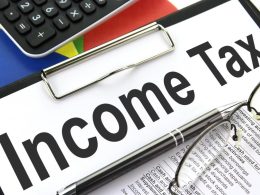Are you aware of the US government’s cash flow crisis? If not, it’s time to pay attention! The current situation can have significant implications for taxpayers, and understanding the root causes is crucial. In this blog post, we’ll break down what exactly this crisis entails and how it came about. But don’t worry – we won’t leave you hanging without solutions. Read on to learn more about possible ways to address this issue and protect your financial well-being in the process!
What is the US Government’s Cash Flow Crisis?
The US Government’s cash flow crisis is a situation where the government is struggling to pay its bills on time due to insufficient funds. In other words, it has more expenses than revenue streams at the moment. This can have serious implications for the country’s economy and taxpayers.
One of the primary causes of this crisis is increased government spending without corresponding increases in tax revenues. Over time, this has led to a significant budget deficit that puts pressure on the government’s ability to meet its financial obligations.
Another factor contributing to the cash flow crisis is declining tax revenues, which have been impacted by economic slowdowns and changes in taxation policies. As fewer taxes come in, expenditures still need funding leading many programs being put on hold or limited.
The COVID-19 pandemic has made matters worse by causing significant disruptions across various sectors of society resulting in further income losses for citizens as well as businesses.
In summary, The US Government’s Cash Flow Crisis refers to an ongoing issue where there isn’t enough money coming into governmental coffers from taxes and other sources compared with what needs paying out each month.
How did the US Government get into this situation?
The US Government’s Cash Flow Crisis is not something that happened overnight. It has been a long time coming, and there are several factors that have contributed to this situation.
One of the main reasons for this crisis is the increasing national debt of the country. The government has been borrowing money to finance its programs and activities, but it hasn’t been able to pay back these loans at an acceptable rate.
Another factor is the rising healthcare costs in America. As more people require medical attention, expenses for treatment and insurance have gone up significantly over time.
Moreover, there has also been a decline in tax revenue collection due to various reasons like unemployment rates or businesses going bankrupt.
COVID-19 pandemic hit the world economy hard which reduced employment opportunities as well as business operations leading toward less tax collections by Federal Government.
All these factors have led us into a cash flow crisis where we can no longer afford our obligations on time without borrowing more money. It’s high time we address this issue before it becomes too late!
What does this mean for taxpayers?
The US Government’s cash flow crisis has significant implications for taxpayers. The government may have to cut spending, raise taxes or borrow more money to meet its obligations. As a result, taxpayers might be on the hook for higher taxes and reduced government services.
Higher Taxes:
If the US Government decides to raise taxes as a solution to this crisis, it could put an additional burden on taxpayers. Taxpayers may have to pay increased income tax rates or other levies such as property taxes or sales tax.
Reduced Government Services:
Another implication of this cash flow crisis is that the government will likely cut back on some essential services such as healthcare, education, social security payments etc. This reduction in services could ultimately impact millions of Americans who rely heavily on these programs.
Borrowing More Money:
The final option would be borrowing more money from lenders both domestically and internationally which can lead to negative economic consequences in the long run such as inflation and devaluation of currency among others.
Therefore, while we wait for what solutions policymakers come up with regarding this issue; it is important for taxpayers to keep an eye out so they are not caught off guard by any outcome that will affect their financial well-being.
What can be done to solve the cash flow crisis?
The US Government’s cash flow crisis is a complex issue that requires immediate attention. To address this problem, several solutions have been proposed by experts and policymakers.
One option is to increase government revenue by implementing tax reforms or closing tax loopholes. This would allow the government to generate more income, which could be used to pay off debts and fund essential programs.
Another solution involves reducing government spending. The government can cut back on unnecessary expenses such as subsidies for large corporations or military spending on non-essential projects. This would free up funds that could be redirected towards paying off existing debt.
The third solution involves borrowing money from other countries or international organizations such as the World Bank. While this may not be an ideal long-term solution, it can provide temporary relief while the government works on implementing structural changes to its financial system.
Some experts suggest printing more money as a way of increasing liquidity in the economy. However, this approach comes with significant risks such as inflation and devaluation of currency.
There are several potential solutions available for addressing the US Government’s cash flow crisis. A combination of these options may prove necessary in order to restore fiscal stability and protect taxpayers’ interests.
Conclusion
The US Government’s cash flow crisis is a serious issue that affects not only the government but also taxpayers. The situation has been caused by a combination of factors, including overspending and decreased revenue due to economic downturns.
While there are no easy solutions to this problem, steps can be taken to alleviate it. These include reducing spending on non-essential programs, increasing taxes for those who can afford it and implementing measures that promote economic growth.
As taxpayers, we all have a stake in ensuring that our government operates effectively. By staying informed about issues such as the cash flow crisis and advocating for responsible fiscal policies, we can help ensure a better future for ourselves and future generations.










